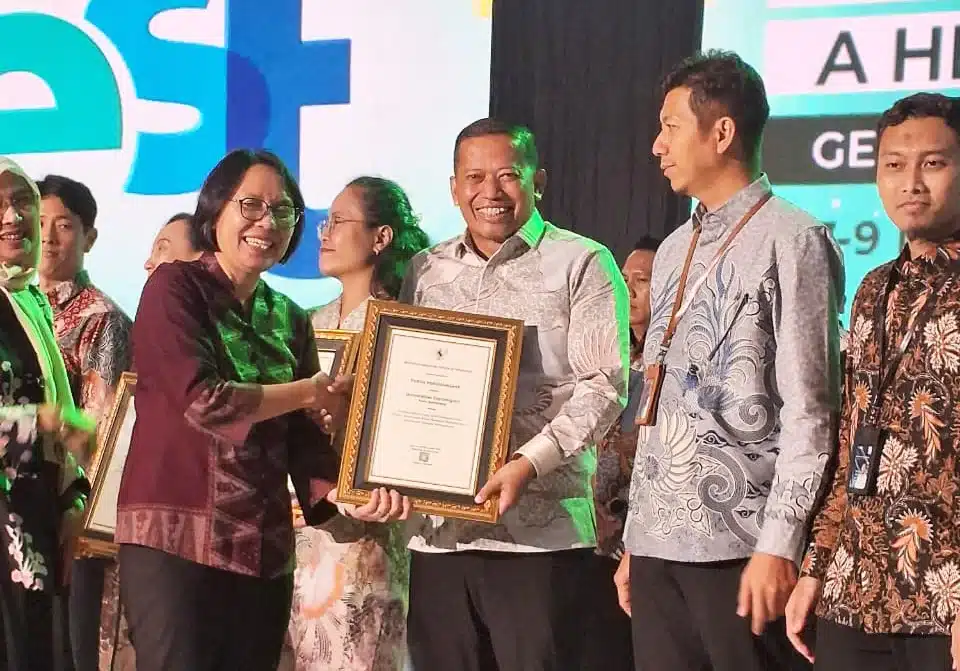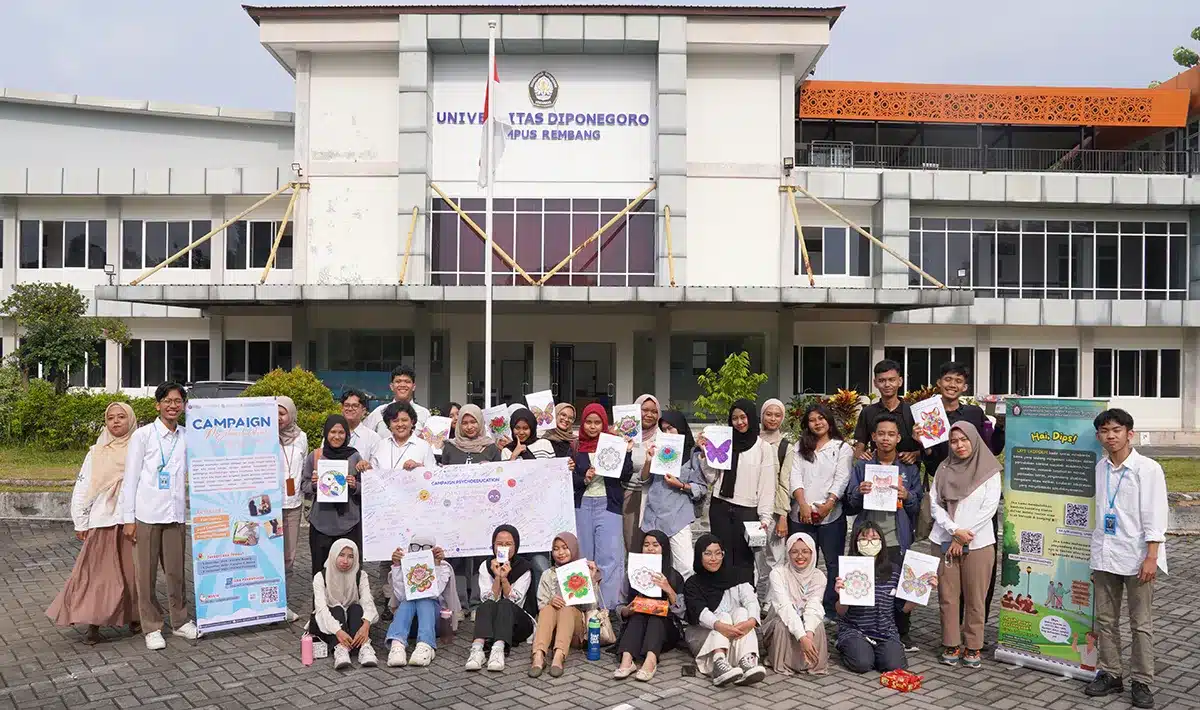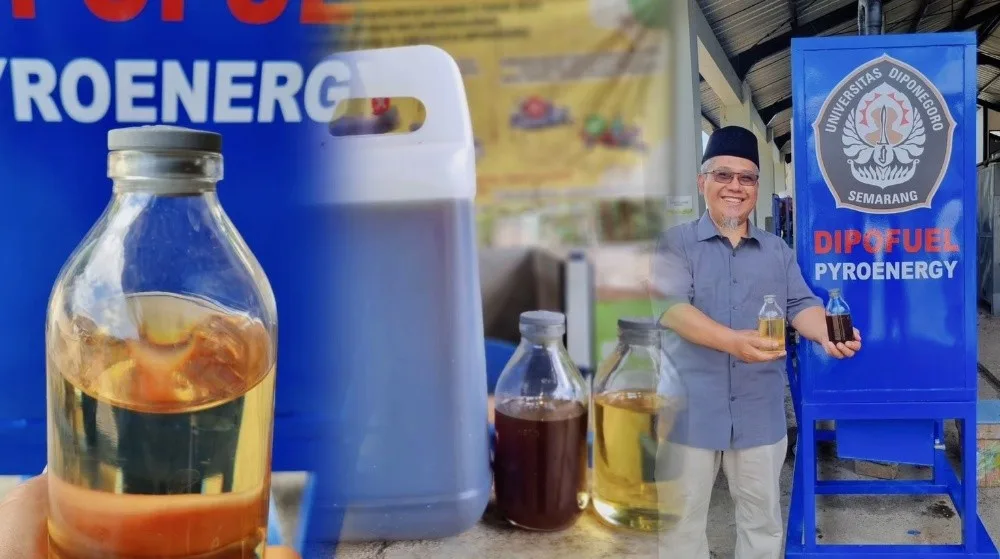Prof. Dr. Mohammad Zen Rahfiludin SKM, M. Kes (Faculty of Public Health) Diponegoro University, was officially inaugurated as an Undip Professor on Tuesday (27/9) at the Prof Soedarto SH Building, Undip Tembalang campus.
In his scientific speech, Prof. Zen said that healthy growth and development in children can be achieved by paying attention to feeding patterns, especially in the first 1000 days of life (HPK) known as the Golden Period. In the first 6 months, babies must receive exclusive breast milk (ASI), namely breastfeeding only without additional food or other drinks, then continued with breast milk and complementary foods (MP-ASI) until the age of 2 years. Breastfeeding can prevent various types of infections that cause infant death and prevent stunting.
“Breast milk from healthy and well-nourished mothers is the best source of food for babies. On the other hand, breast milk from mothers with poor nutritional status can reduce some of the important nutritional content in breast milk, thereby reducing its quality. One indicator of maternal health that can affect the quality of breast milk is maternal anemia status. Mothers with anemia produce breast milk with lower levels of antibodies and nutrients such as protein, fat and minerals. Therefore, it is important to prevent anemia in mothers if they want to maintain the quality of breast milk and babies to get optimal benefits from breastfeeding,” he said.
Furthermore, Prof. Zen said that efforts to prevent anemia in women have been carried out by targeting young women and women of childbearing age (WUS), including through Balanced Nutrition Guidelines, food fortification, supplementation of blood-added tablets, and prevention of co-morbidities such as chronic energy deficiency (KEK) and malaria. The aim is to prevent chronic nutritional problems and prepare mothers-to-be for a healthy pregnancy and ensure quality breast milk. Thus, future generations of Indonesians will be healthier and more resilient so they can play a role in supporting Indonesia’s progress. (Lin – Public Relations)










